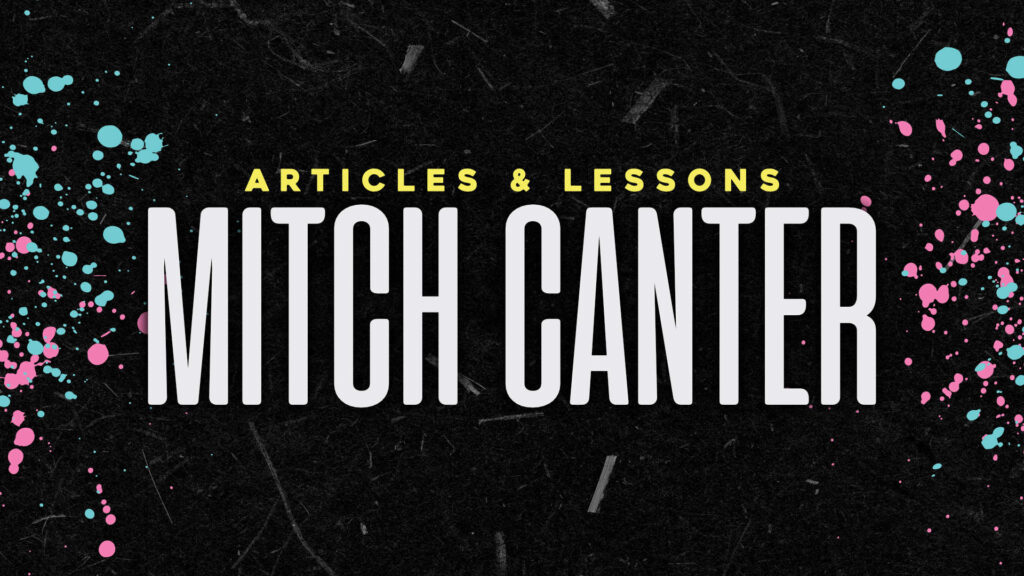The measure of success in creating content can be different for everyone. Most dream of being monetized and creating content full time. Others seek to entertain, and some just want to get their information out to the masses. But regardless of what ‘endpoint’ you are striving for, there’s one thing these goals all have in common: They aren’t actually goals.
“Now hold on a minute…” you may start to say, but please, let me finish first – these are all admirable dreams – things we have in our moments of downtime and the times when ask “what-if”. But having a dream is not enough – we need to set a clear and actionable goal to achieve. So what’s the difference?
A goal is a dream with a deadline.
Setting SMART Goals
A deadline, in this context, doesn’t necessarily mean just having a time-frame – although that is part of the equation. It’s a way that we can quantify what it is that we want. It means that instead of running up and down the field with the ball randomly, we point ourselves toward the end-zone and do what it takes to get there.
If you want to turn your wishes into goals, it’s best to think SMART. A SMART goal is based on the framework created by Peter Drucker. SMART Goals consist of 5 parts:
- Specific
- Measurable
- Attainable
- Relevant
- Timed
Specific Goals
Having a goal that is laser-focused means you are more likely to take the steps necessarily to achieve it. If your goal is too vague, it becomes harder to know the correct actions to take. Your goal should be a definitive, targeted checkpoint that you can take steps to reach.
If you are having trouble coming up with a specific goal, consider these ‘W’ questions:
- Who is involved?
- What do I want to accomplish?
- Why is this goal important?
- Which resources or limits are involved?
Measurable Goals
A hockey player does not skate up and down the ice randomly. Each team has a net/goal, and the team works together to get the puck into that goal as many times as possible. Without a measurable outcome, there is no way to tell exactly HOW you are doing towards the goal. How else will you know when you’ve accomplished it?
Achievable Goals
Your goal should be both realistic and and attainable. But that doesn’t mean you should go for an easy goal as well. Your goal should stretch your limits, but not break you as a professional. The best goals seem hard to reach, but cause you to find new solutions or methods to doing things easier, faster, or better – advancing you toward your milestones.
Relevant Goals
It’s all well and good to set goals, but we have to make sure those goals actually align with the dreams you’re pulling them from. Chances are, you want to set goals to achieve your dreams – becoming a content creator full time, being famous, building a community – all dreams that can be achieved with proper goal setting. But if your goal doesn’t actually feed into your dreams, is it a goal worth going after?
Timed Deadlines
This is probably the facet of goal-setting most people will struggle with. Timelines are a struggle for most people – they want to set their goals and figures, but leave the timeline “open ended”. A goal set this way may never reach fruition. Setting a timed deadline means we are under pressure to deliver on what actionable steps we have to take.
Some SMART Goal Examples
Let’s take some common ‘content creator’ dreams and make them SMARTer, shall we?
Not Smart: I want to become famous. This is probably one of the worst ‘goals’ you can set because it’s vague, open-ended, and there’s nothing to measure what being “famous” really means. What defines fame? What defines success? In order to make it SMART, we need to pick a single metric we can measure this success by.
Smart: I want to be a guest on a nightly talk show within the next 3 years. This goal is still very lofty, but it has a specific metric (talk show guest), can be measured, is attainable, is relevant (since famous people usually are talk-show guests), and has a timed deadline of 3 years.
Not Smart: I want to be a partner on Twitch. A great dream, to be sure, but with no deadline this becomes an open-ended race. It does have a specific measurable outcome, at least.
Smart: I want to be a partner on Twitch within the year. Adding a deadline makes this a SMART goal, because deadlines are what hold us to the grindstone – without it, we simply do other things that steal our focus.
Having some trouble turning your dreams into goals? Tweet mitch (@thatmitchcanter) and talk about it. What goals have you set for your content creation? What’s the hardest part about goal-setting?


